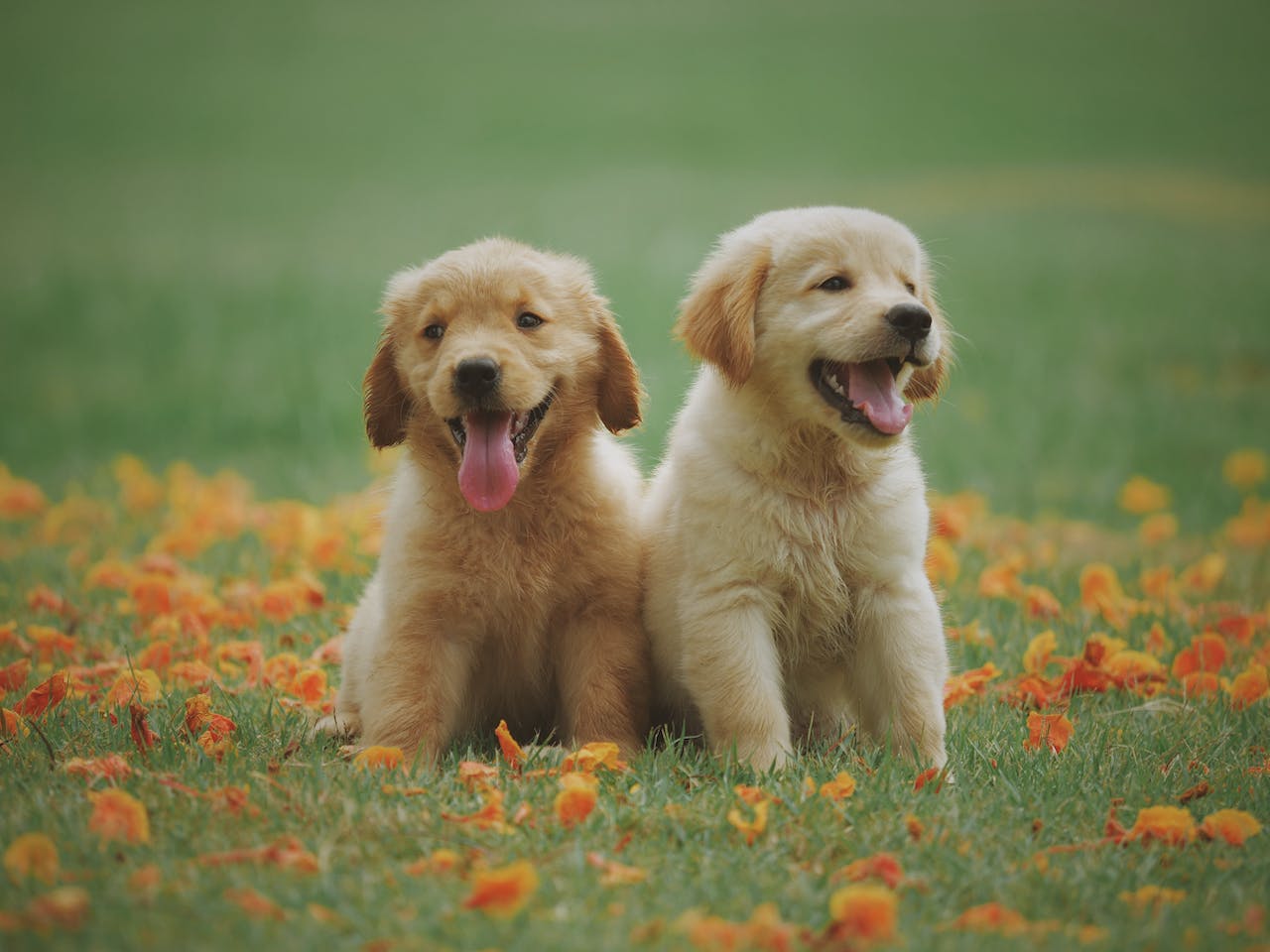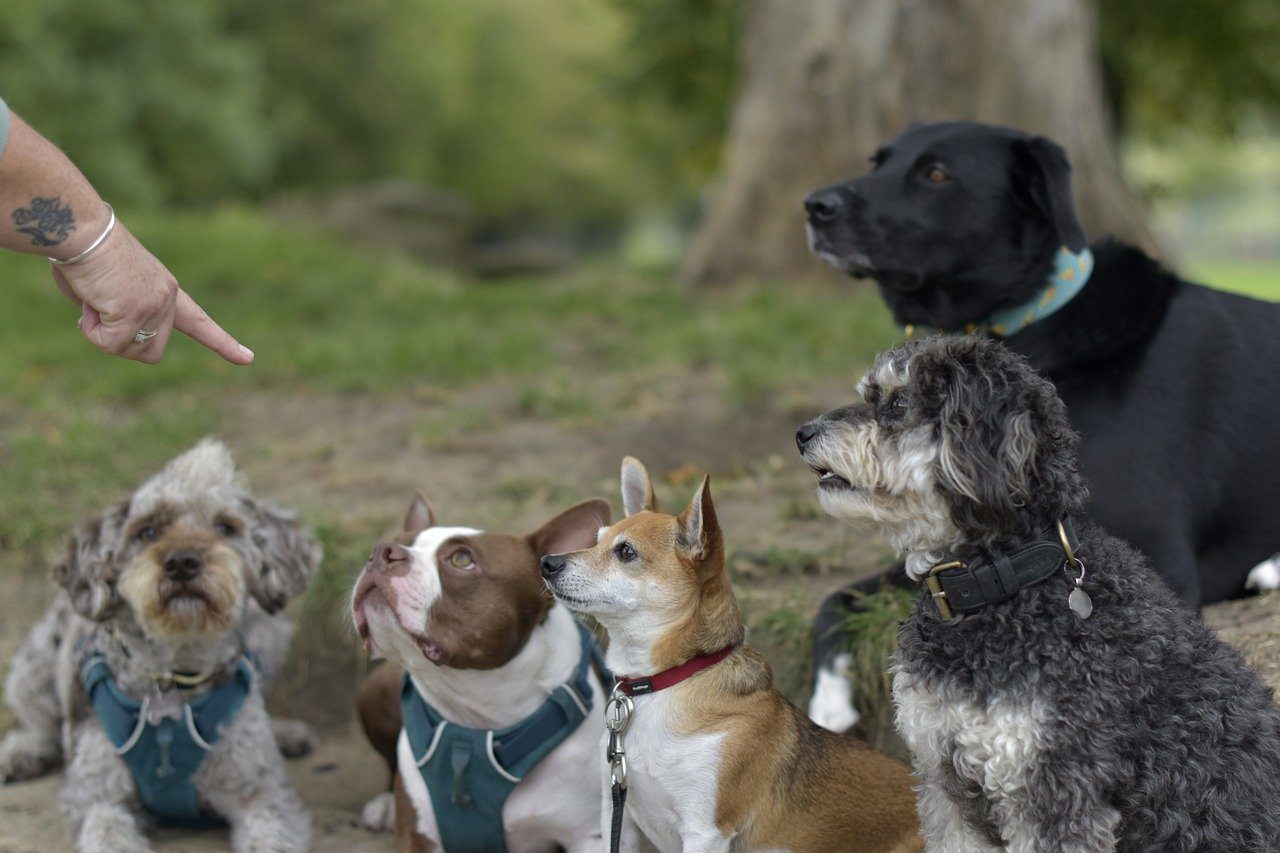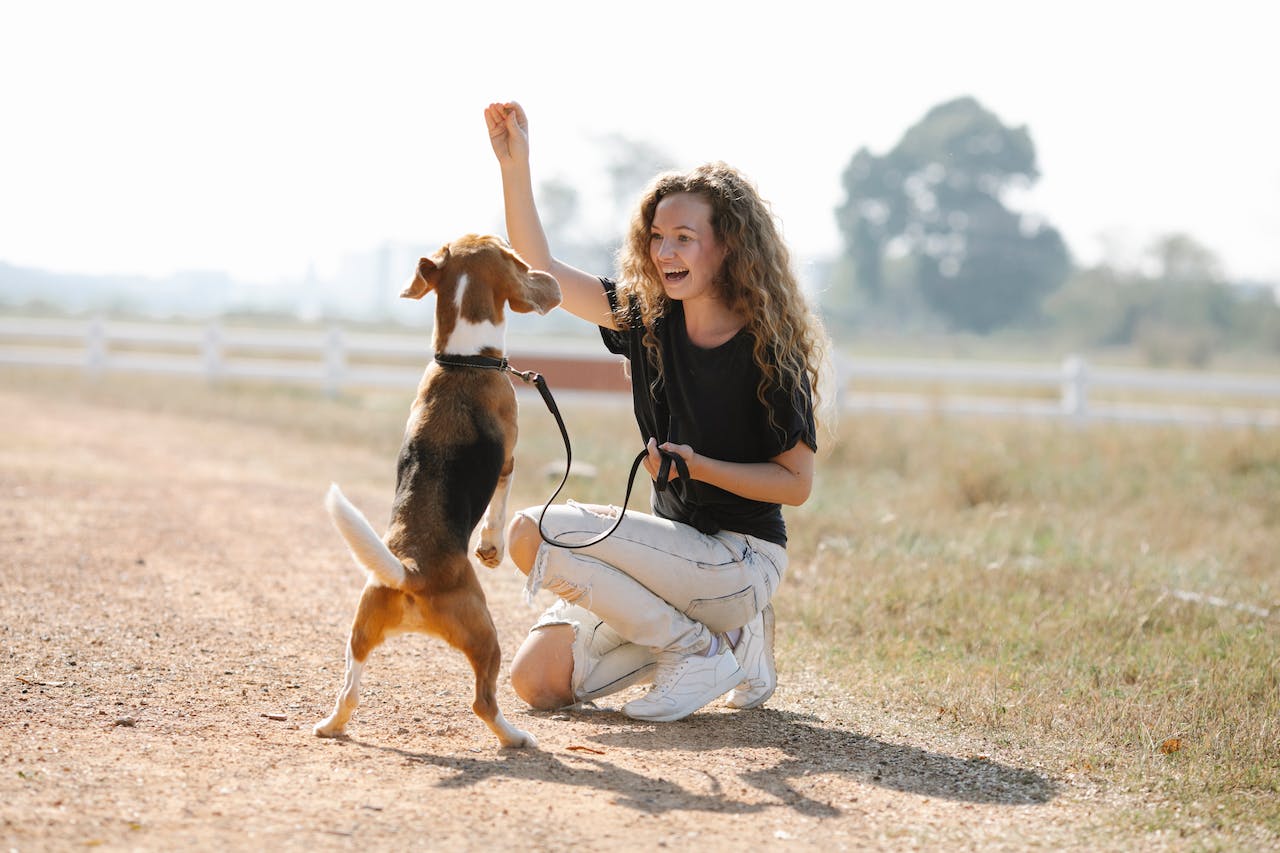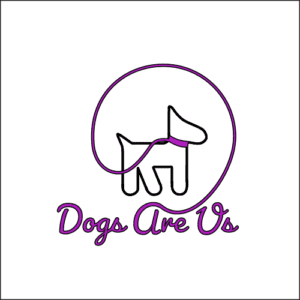Introduction
Puppy training is a crucial step in building a strong bond with your furry friend and preventing behavior problems. It sets the foundation for a lifetime of good behavior and happiness. In this comprehensive guide, we will explore the essential aspects of puppy training, from basic commands to potty training, crate training, positive reinforcement techniques, the importance of socialization, the benefits of puppy training classes, and more. By following these tips and techniques, you can develop a well-behaved adult dog and strengthen your relationship with your puppy.
For example, let’s say you’ve just brought home a new puppy named Max. Max is full of energy and curiosity, and you want to ensure that he grows up to be a well-behaved and obedient companion. This guide will provide you with the knowledge and tools to set Max up for success in his training journey.
When to Start Puppy Training
It’s important to start training your puppy as soon as you bring them home, usually around 8 weeks old. This is a critical period in their development, and early training can have a significant impact on their behavior and socialization skills later in life. By starting early, you can lay a solid foundation for their future learning and development.
For example, when Max arrives at his new home, his training journey begins. At just 8 weeks old, Max is ready to absorb information and learn from his environment. You start teaching him basic commands like “Sit,” “Stay,” and “Come” using positive reinforcement techniques. By providing consistent training from an early age, you can shape Max’s behavior and ensure that he grows up to be a well-behaved and obedient dog.
Basic Puppy Training Commands
Teaching your puppy basic commands is an essential part of their training. Commands like “Sit,” “Stay,” and “Come” provide a foundation for obedience and effective communication. These commands are not only useful in everyday situations but also for ensuring the safety of your puppy.
For example, imagine you’re taking Max for a walk in the park. As you approach a busy road, you give him the command to “Stay.” Max immediately stops and waits for your signal, ensuring his safety. These basic commands are essential for keeping your puppy safe and well-behaved in various situations.
Positive reinforcement is a highly effective training method for teaching these commands. By using treats, verbal praise, and playtime as rewards, you can motivate your puppy to repeat the desired behavior. For instance, when teaching Max to “Sit,” you hold a treat above his head and slowly move it backward, causing him to naturally sit down. As soon as his bottom touches the ground, you reward him with the treat and praise. This positive reinforcement helps Max associate the command with the desired action, making it more likely that he will repeat the behavior in the future.
If you’re in need of training aids or supplies, Dogs Are Us offers a range of products, including toys and treats, in their online store. These products can be helpful in reinforcing the training commands and providing your puppy with the motivation they need to succeed. By incorporating these tools into your training sessions, you can make the learning process more engaging and enjoyable for Max.
Potty Training Your Puppy
Housebreaking, or potty training, is a crucial aspect of puppy training. Establishing a routine and consistency are key to successful potty training. By following a consistent schedule, you can prevent accidents and reinforce the desired behavior.
For example, let’s say you’re potty-training Max. You establish a routine of taking him outside to his designated potty area every two hours. Each time Max successfully eliminates in the right place, you reward him with praise and a treat. This positive reinforcement helps him associate going potty in the correct location with positive outcomes.
It’s important to be patient and consistent throughout the potty-training process, as accidents may happen. If Max has an accident indoors, it’s important not to scold or punish him. Instead, clean up the mess thoroughly and continue with the training process. Punishing your puppy for accidents can create fear and anxiety, hindering their progress in potty training. Remember that each puppy is unique and may learn at their own pace. With time, patience, and consistency, Max will eventually understand where it is appropriate to go potty.
If you need additional support or products for potty training, Dogs Are Us offers a selection of items in their online store. From potty pads to enzymatic cleaners, these products can assist in the potty-training process and make it easier for both you and your puppy.

Crate Training for Puppies
Crate training provides a safe and secure space for your puppy. It can aid in potty training by teaching them to hold their bladder and bowels, as well as prevent destructive behavior when you’re unable to supervise them. Introducing the crate gradually and using positive reinforcement techniques can help your puppy view it as a positive and comfortable environment.
For example, you introduce Max to his crate by leaving the door open and allowing him to explore it at his own pace. You place treats and toys inside the crate to create a positive association. As Max becomes more comfortable with the crate, you gradually start closing the door for short periods of time while he is inside. You always provide him with positive reinforcement, such as treats and praise, when he remains calm and quiet in the crate. This helps him associate the crate with positive experiences and reduces any anxiety or stress he may feel.
Crate training is not only beneficial for potty training but also for providing your puppy with a safe space to retreat to when they need some alone time. It can also be helpful when traveling or visiting the veterinarian. By incorporating a crate into Max’s training routine, you can provide him with a safe space that he can call his own.
If you need crates or training aids to support crate training, Dogs Are Us offers a variety of options in their online store. These products are designed to make the crate training process easier and more comfortable for both you and your puppy.
Positive Reinforcement Training Methods
Positive reinforcement is a highly effective and humane training method that focuses on rewarding your puppy for good behavior. This training approach is based on the principle that behaviors that are rewarded are more likely to be repeated. By using treats, toys, or affection as rewards, you can motivate your puppy to repeat the desired behavior.
For example, when teaching Max the “Stay” command, you start by giving the command and then taking a step back. If Max remains in place, you reward him with a treat and praise. Gradually, you increase the distance and duration of the “Stay” command, providing rewards each time he successfully follows the command. This positive reinforcement helps Max understand that staying in place is a desirable behavior.
Positive reinforcement has been proven to be more beneficial than punishment-based methods, as it creates a positive and trusting relationship between you and your puppy. Punishment-based methods can cause fear and anxiety in puppies, leading to behavior problems and a breakdown in the human-animal bond. By focusing on positive reinforcement, you can build a strong and loving relationship with Max while effectively teaching him the desired behaviors.
Dogs Are Us emphasizing education and trust-building in their training services, promoting a positive and rewarding training experience. Their trainers are experienced in positive reinforcement techniques and can provide you with the guidance and support you need to train your puppy effectively. By incorporating positive reinforcement into your training sessions, you can create a harmonious and enjoyable learning environment for Max.
Importance of Puppy Socialization
Socialization is a crucial aspect of puppy training. Exposing your puppy to other dogs, people, noises, and environments at an early age helps them develop confidence and adaptability. It also helps prevent fear and aggression issues as your puppy grows older. Socialization should begin as soon as you bring your puppy home and continue throughout their first year of life.
For example, you take Max to the park to meet other dogs and interact with people. You expose him to different sounds, such as sirens and car horns, to help him become accustomed to everyday noises. By gradually exposing Max to new experiences, you can help him develop resilience and confidence.
Dogs Are Us offers puppy training classes that focus on socialization and building positive interactions with other dogs and people. These classes provide a controlled and supervised environment for your puppy to meet and interact with other puppies. The trainers at Dogs Are Us can guide you on how to properly socialize Max and address any concerns or challenges that may arise during the process. By enrolling Max in these classes, you can ensure that he receives the socialization he needs to become a well-rounded and confident adult dog.
Troubleshooting Common Training Issues
During the training process, you may encounter common issues such as biting, chewing, and peeing in the crate. These behaviors are natural for puppies and can be addressed with patience and consistency.
For example, let’s say Max has a habit of biting during playtime. When he bites, you immediately stop the interaction and redirect his attention to an appropriate chew toy. This teaches him that biting humans is not acceptable while providing him with an alternative outlet for his chewing needs. By consistently redirecting his attention to appropriate chew toys, you can control and modify his biting behavior.
For chewing and destructive behavior, ensure that Max has plenty of appropriate chew toys available. Puppies have a natural urge to chew, especially during the teething stage. By providing him with a variety of toys made specifically for chewing, you can redirect his chewing behavior to appropriate items. If you catch Max chewing on something he shouldn’t, calmly remove the item and replace it with a chew toy. Remember to praise and reward him when he engages with the appropriate chew toys, reinforcing the desired behavior.
If Max is peeing in the crate, it may be a sign that he is not fully potty trained. Ensure that you are following a regular potty schedule and taking him outside frequently. If accidents continue to occur in the crate, it may be necessary to adjust the size of the crate. A crate that is too large can give Max enough space to eliminate in one corner and sleep in another. By using a crate that is just large enough for Max to stand up, turn around, and lie down comfortably, you can encourage him to hold his bladder and bowels.
If you need personalized guidance to address specific training challenges, Dogs Are Us provides one-on-one training sessions to help you overcome these issues. Their trainers can assess Max’s behavior, identify the root cause of the problem, and provide you with tailored strategies to address the issue effectively. With their expertise and support, you can troubleshoot common training issues and ensure that Max stays on track with his training progress.
Leash Training for Puppies
Leash training is an essential skill for puppies to learn. It allows you to safely take your puppy for walks and explore the world together. Start by introducing your puppy to the leash in a positive and gradual manner. Allow them to sniff and investigate the leash before attaching it to their collar or harness. This helps them become accustomed to the leash and reduces any fear or discomfort they may feel.
For example, when introducing Max to the leash, you let him sniff and play with it before attaching it to his collar. This allows him to become familiar with the leash and associate it with positive experiences. Gradually, you start taking Max for short walks in a controlled environment, using treats as rewards. As he becomes more comfortable, you gradually increase the distance of your walks.
Consistency is key when leash training your puppy. Establish a regular walking routine and stick to it. This helps your puppy understand that walks are a normal part of their daily routine and reduces any anxiety or resistance they may feel. With time and practice, Max will become more comfortable on the leash and will learn to walk calmly by your side.
If you need leashes or training aids to assist with leash training, Dogs Are Us offers a variety of options in their online store. From adjustable leashes to harnesses, these products are designed to make leash training easier and more comfortable for both you and your puppy. By using the right equipment and techniques, you can ensure a pleasant and enjoyable walking experience for both you and Max.

The Benefits of Puppy Training Classes
Joining puppy training classes can provide structured learning and socialization opportunities for your puppy. In these classes, trained professionals guide you and your puppy through various training exercises and help address any specific training challenges you may be facing. Additionally, your puppy will have the opportunity to interact with other puppies in a controlled environment, promoting healthy socialization skills.
For example, by enrolling Max in puppy training classes, he will have the opportunity to learn from trained professionals and interact with other puppies. These classes provide a safe and supervised environment for Max to practice his training exercises and improve his socialization skills.
Puppy training classes offer a supportive and educational environment for both you and your puppy. Trainers can provide you with valuable insights and guidance on how to effectively train your puppy while addressing any questions or concerns you may have. The classes often cover a range of topics, including basic commands, leash training, and socialization. By participating in these classes, you can enhance your own training skills and knowledge, ensuring that you are equipped to continue the training process at home.
In addition to the training benefits, puppy training classes also provide a valuable opportunity for your puppy to socialize with other dogs and people. Interacting with other puppies in a controlled environment helps them learn appropriate social behaviors and develop good manners. It also allows them to burn off excess energy and build confidence in new situations.
Dogs Are Us offers puppy training classes that focus on education, communication, and connection with your dog. Their classes are designed to provide a positive and rewarding training experience for both you and your puppy. With the guidance of their experienced trainers, you can ensure that Max receives the socialization and training he needs to become a well-rounded and obedient adult dog.
Professional Dog Trainers for Puppy Training
If you require additional support or expertise in puppy training, seeking assistance from professional dog trainers can be beneficial. Dogs Are Us, led by a qualified trainer, offers professional training services to help you navigate any training challenges you may encounter. Their trainers have years of experience working with puppies and can provide you with valuable insights and guidance.
For example, if you’re struggling with a specific training issue, such as excessive barking or separation anxiety, a professional dog trainer can assess Max’s behavior and provide you with tailored strategies to address the issue effectively. They can also help you establish a training plan that suits Max’s individual needs and goals. With their expertise and support, you can navigate any training challenges with confidence and ensure that Max receives the best possible training.
In addition to their training services, Dogs Are Us also offers a range of products, including toys, treats, and training aids, to support Max’s training journey. These products are specifically designed to aid in training and can make the learning process more enjoyable for both you and your puppy. By incorporating these tools into your training routine, you can enhance Max’s training experience and set him up for success.
Conclusion
Puppy training is an essential part of raising a well-behaved adult dog and building a strong bond with your furry companion. By starting early, using positive reinforcement techniques, and addressing common training issues, you can set your puppy up for success. Socialization and enrolling in puppy training classes can further enhance your puppy’s training experience. For more information about puppy training classes, one-on-one sessions, and a range of products, visit Dogs Are Us at dogsareus.co.nz. Remember to be patient, and consistent, and enjoy the journey of training and bonding with your puppy.







